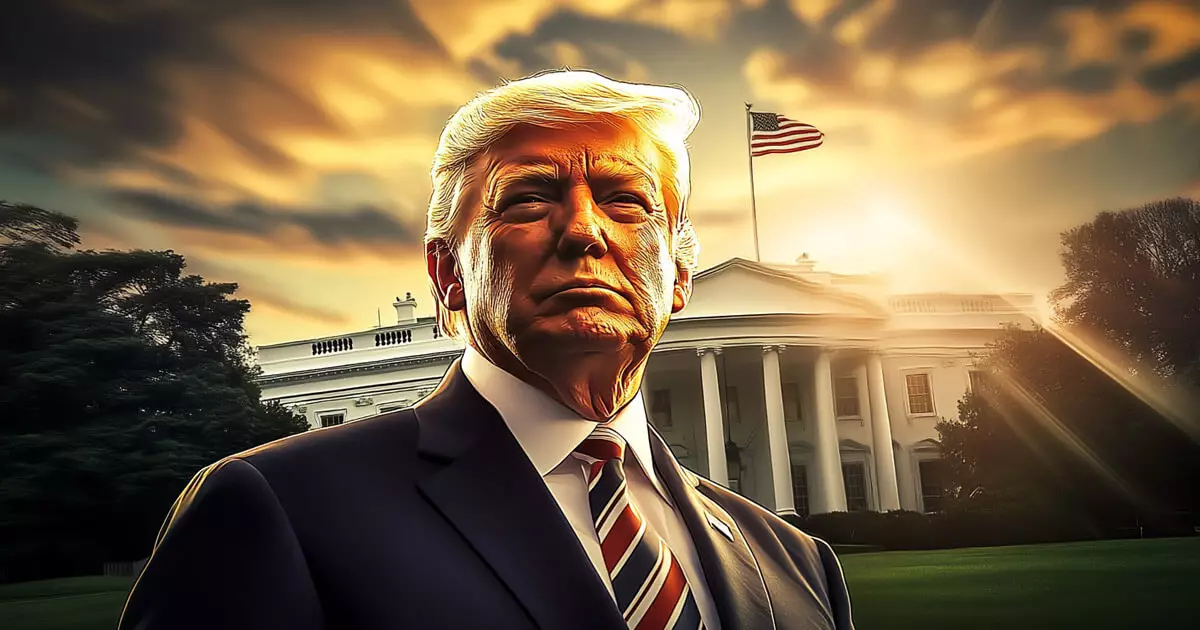The evolution of the cryptocurrency landscape has highlighted the pressing need for a robust regulatory framework in the United States. As the Blockchain Association recently communicated to President-elect Donald Trump, immediate actions within his first 100 days are crucial to invigorate the U.S. crypto industry, which has faced numerous hurdles under existing regulations. This article investigates the key elements of the Blockchain Association’s recommendations and outlines the broader implications for the American economy and its position in the global blockchain ecosystem.
A cornerstone of the Blockchain Association’s appeal is the establishment of a comprehensive regulatory framework tailored specifically to digital assets. This framework would not only provide clarity and consistency within the industry but also create a conducive environment for innovation. With over 100 member firms, the association emphasizes the necessity for a bipartisan legislative effort that delineates specific market structures and stablecoin regulations. Without such regulatory clarity, existing and potential crypto ventures may falter under the weight of current ambiguous laws, rendering them vulnerable to unforeseen enforcement actions.
The landscape of cryptocurrency has evolved significantly, yet the regulatory framework lagging behind poses challenges for institutions and entrepreneurs alike. As these issues unfold, the tension between innovation and necessary consumer protections becomes increasingly palpable. Striking the right balance is paramount, as indiscriminate regulations could stifle one of the most promising sectors of the economy.
Equally pressing is the issue termed “debanking,” where traditional banks impose restrictions on services they provide to crypto companies. Such discriminatory practices hinder businesses from accessing essential functions like payroll processing and vendor payments, ultimately stifling growth and innovation. Coinbase’s findings indicating FDIC advisories urging banks to limit services to the crypto sector underscore the detrimental effects of this trend. The Blockchain Association articulates that the cessation of these practices is essential for fostering a vibrant crypto ecosystem that operates on equal footing with other industries.
Furthermore, the association’s concerns extend to the so-called Operation Chokepoint initiated during President Biden’s administration. This operation, characterized by strict enforcement against companies involved in blockchain technology, has had a chilling effect on the industry. A thoughtful reevaluation of such measures by the incoming administration could lay the groundwork for more equitable conditions for all market participants.
The sentiment for concluding the current “regulation-by-enforcement” approach resonates throughout the Blockchain Association’s correspondence. This strategy has not only created a climate of uncertainty for businesses but has also deterred innovation. The proposed rollback of SAB 121—a guideline perceived as punitive toward crypto enterprises—highlights a desire for a more transparent regulatory environment conducive to growth. Calls for fresh leadership within the Securities and Exchange Commission (SEC) are also notable, as stakeholders demand a shift toward more supportive governance.
Clarity surrounding tax regulations, particularly those set forth by the IRS regarding digital assets, stands as another crucial priority. The existing crypto tax rules may inadvertently compel ambitious firms to relocate offshore, depriving the U.S. of its leadership role in blockchain innovation. The Blockchain Association urges a fresh perspective on tax policies, particularly concerning the Broker Rule, to avoid driving crypto companies away from American soil.
The Blockchain Association makes a compelling argument for creating a public-private advisory council designed to facilitate effective policymaking around digital technologies. This council could serve as a bridge between Congress, regulatory bodies, and industry players, ensuring that regulations reflect the realities and challenges of an evolving digital economy. Encouragingly, such a collaborative approach could yield more effective and relevant regulations that prioritize innovation and consumer protection simultaneously.
In this rapidly changing landscape, the association emphasizes the urgency for President Trump’s administration to act decisively. As other nations implement crypto-friendly policies, the U.S. risks stagnating in a global race to attract blockchain investment and development. By embracing the proposed initiatives, the new administration has the potential not only to rejuvenate domestic crypto operations but also to establish the U.S. as a beacon of blockchain innovation worldwide.
The recommendations from the Blockchain Association present an opportunity for transformative change within the U.S. crypto industry. A commitment to a supportive regulatory framework, comprehensive solutions for banking discrimination, and a collaborative approach to policymaking can help the country reclaim its position as a leader in the blockchain revolution.

